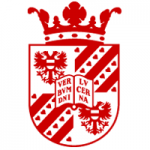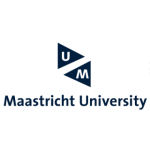项目介绍
Curriculum Studies and Teacher Education (CTE) offers doctoral degrees with the following specializations: Elementary Education; Literacy, Language, and English Education; History/Social Science Education; Mathematics Education; Science and Environmental Education; and Teacher Education. In addition, two cross-area specializations—Learning Sciences and Technology Design, and Race, Inequality, and Language in Education—enable doctoral students in those specializations to ground their studies in the CTE academic area.
CTE is designed to prepare scholars and practitioners to address a number of fundamental educational questions: What should be taught, to whom, for what ends? How can school programs be organized to optimize the educational development of students? What processes can be employed to enable teachers and policy makers to understand the strengths and weaknesses of schools?
CTE is based on the premise that schools are most likely to improve when those engaged in their improvement recognize the highly interactive nature of school processes. How science is taught, for example, is not independent of the time teachers spend planning their programs or how they believe their efforts will be evaluated. How school subjects are defined and the time allocated to them influence what students are able to learn. What options exist for the organization of the school curriculum? How do evaluation practices influence the priorities of both teachers and students and how can such practices be designed so that they support, rather than inhibit, the achievement of educational aims? CTE helps graduate students learn how to think about such questions and how to develop the specialized understanding and research skills needed to study and improve educational practice.CTE – Elementary Education
The Elementary Education specialization is designed for students interested in exploring and contributing to scholarship and teaching related to issues of pedagogy, curriculum design and implementation, school reform, equity, and equality as they relate to elementary schools, classrooms, and educators. This specialization aims to prepare scholars, practitioners, and leaders to address a range of important questions in the field of elementary education and elementary teacher education.
Stanford Graduate School of Education includes a number of faculty whose scholarship and teaching take place in elementary schools and who have an interest in, and enthusiasm for, cultivating scholars in the field of elementary education. CTE students collaborate closely with faculty on research, teaching, and the design of their graduate programs.
CTE students appreciate the myriad connections between elementary education and the full range of disciplinary specializations and research foci of GSE faculty. Students also make good use of the wider resources available at Stanford, routinely enrolling in courses across the university.
Admission depends on a combination of factors, including successful teaching or related experience, strong academic achievement, professional accomplishments, and the fit between student interests and background on the one hand and faculty availability and research areas on the other.
Affiliated faculty include (are not limited to): Ira Lit, Rebecca SilvermanCTE – History/Social Science Education
The program in History/Social Science Education is concerned with how young people make sense of both the past and their present in school and out-of-school settings. The program explores core issues of teaching and learning and engages the very nature of historical consciousness: What does it mean to live in a present suffused by the past? How can the skills of historical reasoning be leveraged to help us understand digital information that confronts us in the present? The program also explores online civic reasoning and how to help students and teachers prepare for a world in which the very idea of truth is under assault.
Taught well, history fosters tolerance for complexity and intolerance for simple answers. How can schools teach young people to discern reasoned interpretations from stances that seek to extinguish—not promote—critical judgment? What can educators do to cultivate historical reasoning and teach young people that there’s more to the past than just names and dates? Cutting-edge research shows that even elementary school children can learn to think historically, but such classrooms are rare. How can we design bold pedagogies and adventuresome curricula so that such classrooms become the rule, not the exception—for all students, not just the privileged?
New technologies offer a potential answer but one that has yet to be realized. Digital media allow 10-year-olds to enter online archives that a few years ago required flights across the country and layers of written consent. How can we mobilize such technologies so that students embrace the rich complexity of the documentary record? How can we prepare future teachers who can turn digital materials into programs for advancing students’ understanding? How do we develop curriculum that allows students to see through the falsehoods and deceptions that pervade the internet?
There are no formal prerequisites for admission to the program in History/Social Science Education. Experience in teaching history/social science is definitely asset and provides a useful entry point to many of these questions. But more important than any set of prior experiences is a boundless curiosity to understand how the past shapes understanding in the present and how we can learn more about designing effective educational programs. Many backgrounds prepare one for successful graduate study in this PhD concentration: teaching, filmmaking, web design, programming, and archival work are some of the many possibilities. Successful candidates will likely possess an academic background in one or more of the following areas: history, anthropology, geography, cognitive science, computer science, cultural studies, American Studies, philosophy, political science, psychology, or sociology.
For more information and examples of our latest research projects, please visit http://sheg.stanford.edu
Affiliated faculty: CTE – Literacy, Language, and English Education
The program in Literacy, Language, and English Education is designed for students interested in exploring and contributing to the research and scholarship on literacy learning and instruction from preschool through secondary school. Students in this area study linguistic, psychological, social, historical, and cultural issues related to oral and written language, as well as focus on the preparation of prospective teachers of literacy, language, and English language arts. The program seeks to produce scholars who provide intellectual leadership in the field and work at the intersection of theory and practice. Stanford GSE has multiple faculty who study facets of literacy.
Our students have often explored questions in one or more of the following domains:
Early literacy development
Adolescent literacy
Curriculum development
The teaching of reading and/or literature
The teaching of writing
Reading comprehension
Classroom discourse
Literacy theory
Literacy and language development for English language learners
Social, cultural, and critical dimensions of literacy learning
Teacher education
Teacher professional development
As part of their programs, students are encouraged to take courses in the English, linguistics, sociology, history, and psychology departments as well as in the Graduate School of Education. Each student’s program is individually designed, with the assistance of a faculty advisor, in light of the student’s background and interests.
Although there are no degree prerequisites for admission to the program in Literacy, Language, and English Education, many applicants have undergraduate degrees in English, literacy education, linguistics, anthropology, psychology, or other related areas. Admission depends on a combination of factors, including successful teaching experience, strong academic achievement, and professional accomplishments, as well as the fit among student interests, program offerings, and faculty availability and research areas.
Affiliated faculty:
CTE – Mathematics Education
The program in Mathematics Education provides opportunities to work with faculty who study mathematics teaching and learning, both within and outside CTE and Stanford GSE. Current research projects are addressing issues of equity, interactions between teaching and student learning, the impact of different mathematics teaching and curricular approaches, and lesson study (teacher professional development). Students can choose to take courses and work with faculty and students in the Department of Mathematics, School of Engineering, and other academic units outside the GSE. For those interested in teacher education and teacher professional development, there are opportunities to develop materials for pre-service and in-service mathematics teachers, and to work in the Stanford Teacher Education Program (single-subject mathematics and multiple-subject).
Students applying to this specialization will be expected to have worked in mathematics education as a teacher or other education professional, and to have an undergraduate degree in mathematics or another subject that informs analyses of mathematics teaching and learning. Admission depends on a combination of factors, including evidence of academic achievement, professional accomplishments, and fit between students’ interests and program offerings.
Affiliated faculty:
CTE – Science and Environmental Education
The program in Science and Environmental Education prepares students for teaching and research in a number of research areas. Research conducted in the program in Science Education includes teaching, teacher education, curriculum development, assessment, program evaluation, the informal learning of science, environmental literacy, and policy formulation. Classes offered include: Research in Science Education, Policy and Practice in Science Education, the Science Curriculum, Science Assessment and Evaluation, Science and Environmental Education in Informal Contexts, Learning in Science, and Theory and Practice of Environmental Education.
Recent science education research projects have focused on students’ attitudes towards science, argumentation in science education, the role of language and identity, exploring issues of access for STEM majors, formative and summative assessment with an emphasis on performance assessment of students, reading science for understanding, climate change and environmental behavior, and evaluation of programs that promote gender equity in science, mathematics, and engineering. For those interested in science teacher education and teacher professional development, there are opportunities to develop materials for pre-service and in-service teachers and to work in the Stanford Teacher Education Program (a master’s level program for students working for a secondary-school California teaching credential). In addition, Stanford is a leading site for research in science itself with many outreach programs for those interested in communicating science or working with scientists.
Science teaching experience in a classroom or an out-of-school setting is required for admission to the program. An undergraduate degree in a science field is also necessary, and graduate work in science is desirable.
Affiliated faculty:
CTE – Teacher Education
The Teacher Education specialization focuses on the study and improvement of teaching (across subject areas in elementary and secondary schools) and teacher education (throughout the career span). Students in this program are often interested in the relationship between the subject being taught and the particular pedagogical knowledge and skills needed to teach that subject effectively, and in effective ways of facilitating teacher learning of this body of knowledge and skills. They are concerned with the educational consequences of different approaches to teaching and the policies that shape teaching and teacher education. Many students build careers within institutions of higher education where teachers are prepared and where the practice of teaching can be studied and improved. The purpose of this specialization is to help students develop a framework for understanding teaching, research on teaching, and the implications of research for the improvement of teaching, teacher education, and policy. The program aims to prepare teacher educators and educators to understand and address the needs of students in culturally and linguistically diverse classrooms.
Affiliated faculty:
Cross-area specialization – Learning Sciences and Technology Design
Students in the Learning Sciences and Technology Design (LSTD) program complete foundational research on learning and design innovative learning technologies. As a cross-area specialization, the LSTD program links its content to one of the three academic areas: Curriculum Studies and Teacher Education (CTE), Developmental and Psychological Sciences (DAPS), or Social Sciences, Humanities, and Interdisciplinary Policy Studies in Education (SHIPS).
Learn more at Learning Sciences and Technology Design (LSTD).Cross-area specialization – Race, Inequality, and Language in Education (RILE)
The cross-area specialization in Race, Inequality, and Language in Education (RILE) brings an interdisciplinary scholarly focus to the major factors that influence educational attainment, especially for underserved children. Students ground their RILE studies within the context of one of the three academic areas: Curriculum Studies and Teacher Education (CTE), Developmental and Psychological Sciences (DAPS), Social Sciences, Humanities, and Interdisciplinary Policy Studies in Education (SHIPS).
Learn more at Race, Inequality, and Language in Education (RILE).
Qualifying Papers
The CTE doctoral qualifying paper (or QP) has two purposes: The first is to provide second year doctoral students with a direct experience in conceiving, designing, carrying out, and writing up an original piece of research before setting out on a dissertation. The second is to demonstrate that students are capable of undertaking a doctoral dissertation that meets the academic standards of this university. (See “GUIDELINES FOR CTE QUALIFYING PAPER” for more detailed information about the content and expectations for the QP.)
The qualifying paper (QP) should be a work of original research. The QP study addresses a research question by collecting and analyzing original data, primary materials, or by analyzing an existing data set. In structure, format, and length, the QP should be modeled on articles in a scholarly journal that the student, in consultation with the adviser, has identified as appropriate for the research undertaken.
Click here to login to the CTE Qualifying Paper Archive
Reading Lists
联系方式
电话: 650-723-2300相关项目推荐
KD博士实时收录全球顶尖院校的博士项目,总有一个项目等着你!





